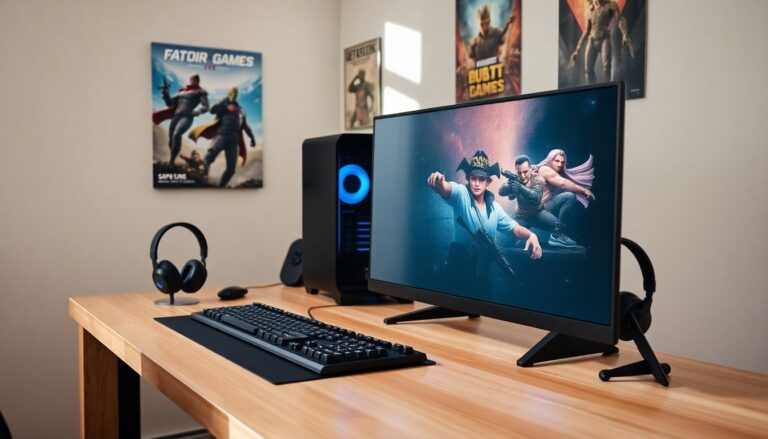Argomenti trattati
For gaming enthusiasts, selecting the right computer can significantly enhance the gaming experience. Unfortunately, investing in high-end gaming setups is not feasible for everyone. Fortunately, the market for budget gaming computers has expanded, providing impressive performance options that do not compromise financial stability. This article aims to guide readers in choosing the ideal budget gaming computer by highlighting essential features, capabilities, advantages, and potential limitations.
Key components to consider
When searching for a budget gaming computer, it is crucial to focus on components that will most significantly influence your gaming experience. Below are vital aspects to consider:
Processor
The central processing unit (CPU) is the core of any gaming setup, playing a crucial role in determining overall performance. For budget-conscious builds, it is advisable to select processors with at least four cores and a clock speed of 3.0 GHz or higher. Many modern CPUs also incorporate multi-threading capabilities, which enhance performance during gaming and multitasking.
Graphics card
The graphics processing unit (GPU) is arguably the most vital component in a gaming computer. A dedicated GPU is essential for running modern games at smooth frame rates. While high-end GPUs may exceed budget constraints, numerous affordable options can efficiently manage 1080p gaming at medium to high settings. It is recommended to choose GPUs with a minimum of 4 GB of video memory (VRAM) to ensure optimal performance.
Memory and storage
In gaming, having an adequate amount of random access memory (RAM) is crucial for performance. While 8 GB is the minimum recommendation, choosing 16 GB is advisable for a smoother experience, especially when multitasking. The speed and capacity of RAM significantly influence how quickly your system can access data, which is vital for gaming and other resource-intensive applications.
Storage solutions are equally important for the efficiency of your gaming computer. A combination of a solid-state drive (SSD) and a traditional hard disk drive (HDD) is often the best choice for budget setups. Use the SSD for your operating system and frequently played games to improve load times, while the HDD can store larger files and less frequently accessed data.
Cooling and power supply considerations
Effective cooling is vital for optimal performance during gaming sessions, as gaming activities generate significant heat. Many budget gaming computers feature basic air cooling solutions. However, it is important to ensure that your system has sufficient airflow and cooling capacity to avoid overheating.
The power supply unit (PSU) also plays a critical role, delivering the necessary power to all components of the system. For budget gaming PCs, a PSU with a wattage range of 500W to 650W is generally adequate, depending on the other components in your setup. A reliable PSU is essential for maintaining system stability.
Upgrade potential and gaming capabilities
A budget gaming computer should provide viable options for future upgrades. It is advisable to choose systems equipped with additional RAM slots, storage bays, and motherboards that support newer CPUs and GPUs. This adaptability enables users to improve their computer’s performance over time without the necessity of a complete system overhaul.
Although most budget gaming computers are primarily optimized for 1080p gaming, they can still deliver high visual quality and smooth gameplay at this widely used resolution. Many contemporary budget GPUs are capable of achieving frame rates of 60 FPS or higher for popular gaming titles at medium to high settings.
Versatility in usage
Budget gaming computers are not exclusively designed for gaming; they effectively manage everyday tasks like web browsing, video streaming, and productivity applications. Their robust hardware ensures these activities are performed efficiently, establishing them as versatile machines suitable for both entertainment and work.
Limitations of budget systems
While budget gaming computers offer affordability and commendable performance, they do have certain limitations. These systems may experience difficulty with high-resolution gaming, advanced virtual reality experiences, or intensive content creation tasks. Furthermore, the use of entry-level components may result in a shorter lifespan as technology continues to advance.
Budget gaming computers offer a valuable solution for gamers who seek performance without a hefty price tag. Prioritizing essential components such as the CPU, GPU, RAM, and storage is crucial when assembling a system that meets gaming needs. With proper maintenance and periodic upgrades, a budget gaming setup can deliver numerous hours of enjoyable gaming experiences.

